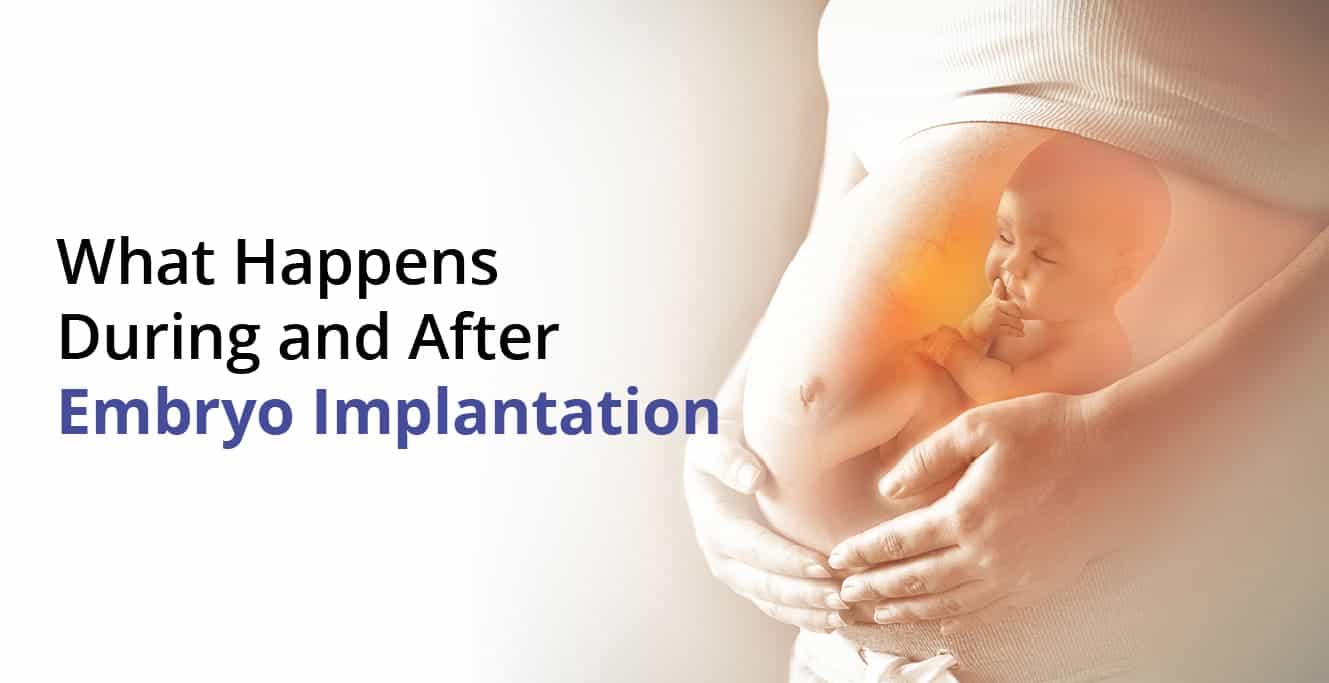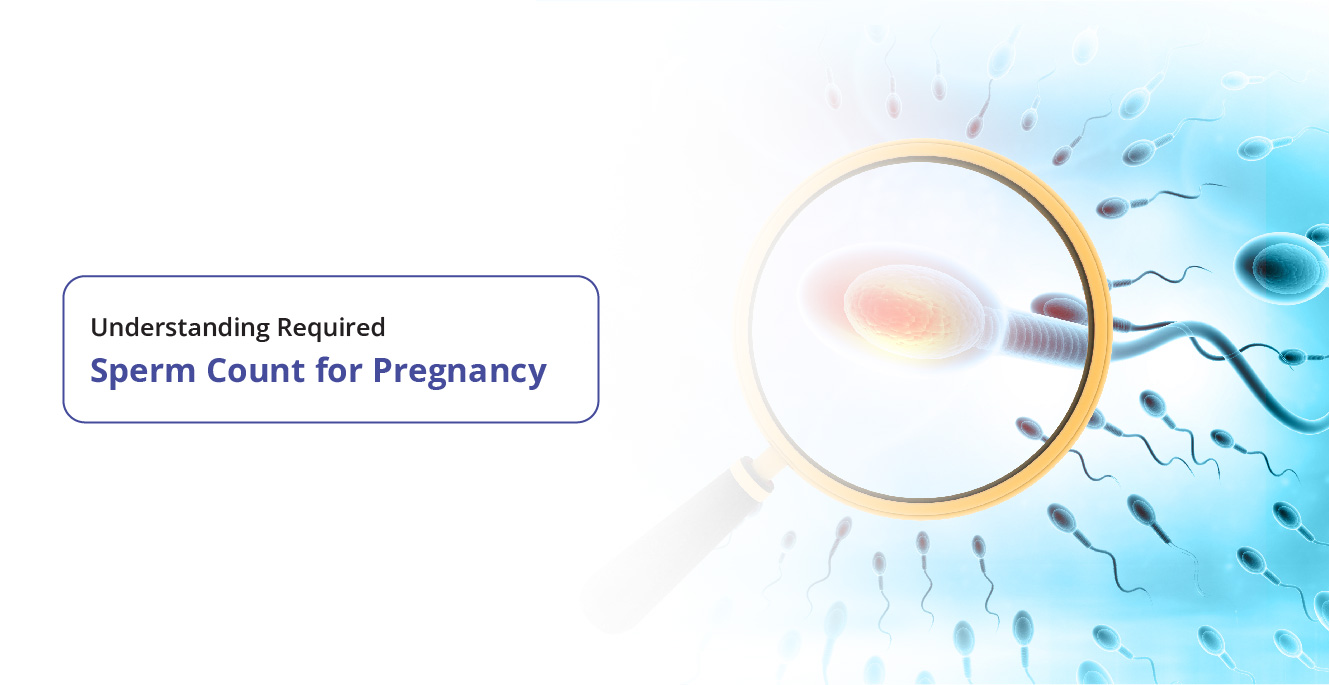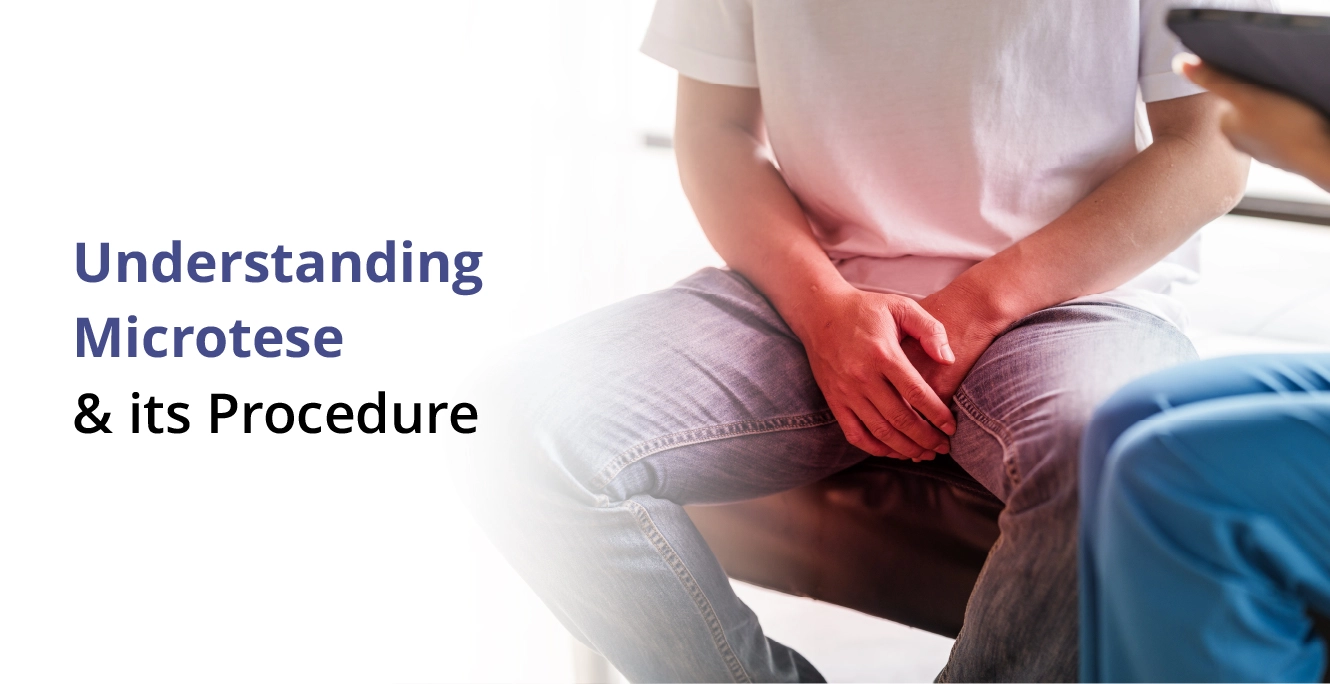Embryo implantation: What happens during and after?
- Published on May 16, 2022

Embryo implantation is the final step that paves way for a successful pregnancy. It is a significant step for IVF, IUI and ICSI treatment. While undergoing fertility treatment, it is important to remain aware of what may and may not happen, during each step. The following article, written with insights from Dr. Shobhna, provides details of what happens during and after embryo implantation.
However, before we begin to note the signs and symptoms of successful blastocyst implantation, let us first understand what is meant by this process.
Table of Contents
What is Embryo Implantation?
For an IVF treatment, the fertility doctor begins by inducing ovulation in the female partner for the production of a higher number of healthy eggs. After tracking ovulation, he/she retrieves a certain number of healthy, mature eggs. Simultaneously, a semen sample is obtained from the male partner. This semen sample is washed and concentrated to select healthy sperm cells.
The egg and sperm cells are allowed to combine and fertilise in a Petri dish in a carefully monitored environment. This results in the formation of embryos.
The resultant embryos are allowed to develop till the blastocyst stage (till 5-6 days) before they are implanted into the uterus.
Embryo implantation is done by a fertility doctor through transvaginal ultrasound. In an embryo transfer, the doctor inserts a speculum in the woman’s vagina guided by real-time ultrasound. This speculum is made to pass through the cervix and into the womb to allow for implantation.
Points to note about embryo implantation
- Embryo transfer is performed at the blastocyst stage so that the embryo attains the right receptivity with the endometrial lining
- Embryo implantation usually occurs after 6-10 days of egg retrieval
- The attachment and invasion of the embryo begin within one day of embryo transfer
- The implantation rate for embryos depends on the age of the female and chromosomal screening and associated risks
Read more about IVF process in hindi
What happens during Embryo Implantation?
The process of embryo implantation is divided into three main phases which explain what happens after embryo transfer day by day:
- Apposition phase
- Attachment or adhesion phase
- Penetration or invasion phase
The apposition phase is defined as the unstable adhesion phase in which the blastocyst embryo sticks to the surface of the uterine lining.
In the attachment phases, stable adhesion occurs, and the embryo and uterine lining signal back and forth.
The penetration phase or invasion phase involves the invasion of the embryonic cells through the surface of the uterine lining into the stroma of the uterine lining leading to the formation of a vascular connection.
The entire process of implantation completes in 7-12 days after conception. The embryo then begins to divide and develops into a zygote. Post this, the zygote releases a hormone called the HCG that is used to determine pregnancy.
What happens after embryo implantation?
Successful embryo implantation determines whether the pregnancy is confirmed or not. The same is reflected by a range of common signs and symptoms.
Symptoms of successful embryo implantation include:
- Abdominal cramping – You can expect to feel slight cramps in your abdominal region. Cramping is commonly felt during implantation.
- Mild spotting – Slight vaginal bleeding in the form of spotting is a common sign of successful blastocyst implantation.
- Discomfort in the breast – Breast tenderness is a common early sign of pregnancy. You can expect to feel light swelling in your breast along with tenderness.
- Food cravings and aversions – After successful implantation, you may feel attracted towards certain types of food items with an enhanced craving. On the other hand, it is also possible to feel slight food aversions.
- Temperature changes in the body – Early signs of pregnancy include a slight jump in your body temperature which is caused by increased levels of progesterone.
- Changes in vaginal discharge – Successful embryo implantation can lead to a brown-tinted vaginal discharge after 1-2 days of the implant happening.
The Concluding Note
It is important to learn about the process of implantation and signs of positive implantation for all couples, especially the ones who are seeking fertility treatments. This information helps you remain aware of what to expect in the coming time and have a positive approach or seek timely treatment.
For more information on embryo implantation, book an appointment with Dr. Shobhna at Birla Fertility & IVF.
Related Posts
- What is an AMH test
- बाइकॉर्नुएट गर्भाशय क्या है – कारण, लक्षण और उपचार (Bicornuate Uterus in Hindi)
- আই.ভি.এফ. (IVF) সংক্রান্ত চিকিৎসার খরচ সম্পর্কিত কিছু কথা: সন্তানের জন্ম দিতে চাওয়া দম্পতিদের জন্য একটি পূর্ণাঙ্গ নির্দেশিকা
- In Vitro Fertilization (IVF): Process, Side-Effects, and Failures
- Understanding Required AMH Levels for IVF Treatment
Written by:
Our Services
Fertility Treatments
Problems with fertility are both emotionally and medically challenging. At Birla Fertility & IVF, we focus on providing you with supportive, personalized care at every step of your journey towards becoming a parent.Male Infertility
Male factor infertility accounts for almost 40%-50% of all infertility cases. Decreased sperm function can be the result of genetic, lifestyle, medical or environmental factors. Fortunately, most causes of male factor infertility can be easily diagnosed and treated.We offer a comprehensive range of sperm retrieval procedures and treatments for couples with male factor infertility or sexual dysfunction.
Donor Services
We offer a comprehensive and supportive donor program to our patients who require donor sperm or donor eggs in their fertility treatments. We are partnered with reliable, government authorised banks to source quality assured donor samples which are carefully matched to you based on blood type and physical characteristics.Fertility Preservation
Whether you have made an active decision to delay parenthood or are about to undergo medical treatments that may affect your reproductive health, we can help you explore options to preserve your fertility for the future.Gynaecological Procedures
Some conditions that impact fertility in women such as blocked fallopian tubes, endometriosis, fibroids, and T-shaped uterus may be treatable with surgery. We offer a range of advanced laparoscopic and hysteroscopic procedures to diagnose and treat these issues.Genetics & Diagnostics
Complete range of basic and advanced fertility investigations to diagnose causes of male and female infertility, making way for personalized treatment plans.Our Blogs
To Know More
Speak to our experts and take your first steps towards parenthood. To book an appointment or to make an enquiry, please leave your details and we will get back to you.


































